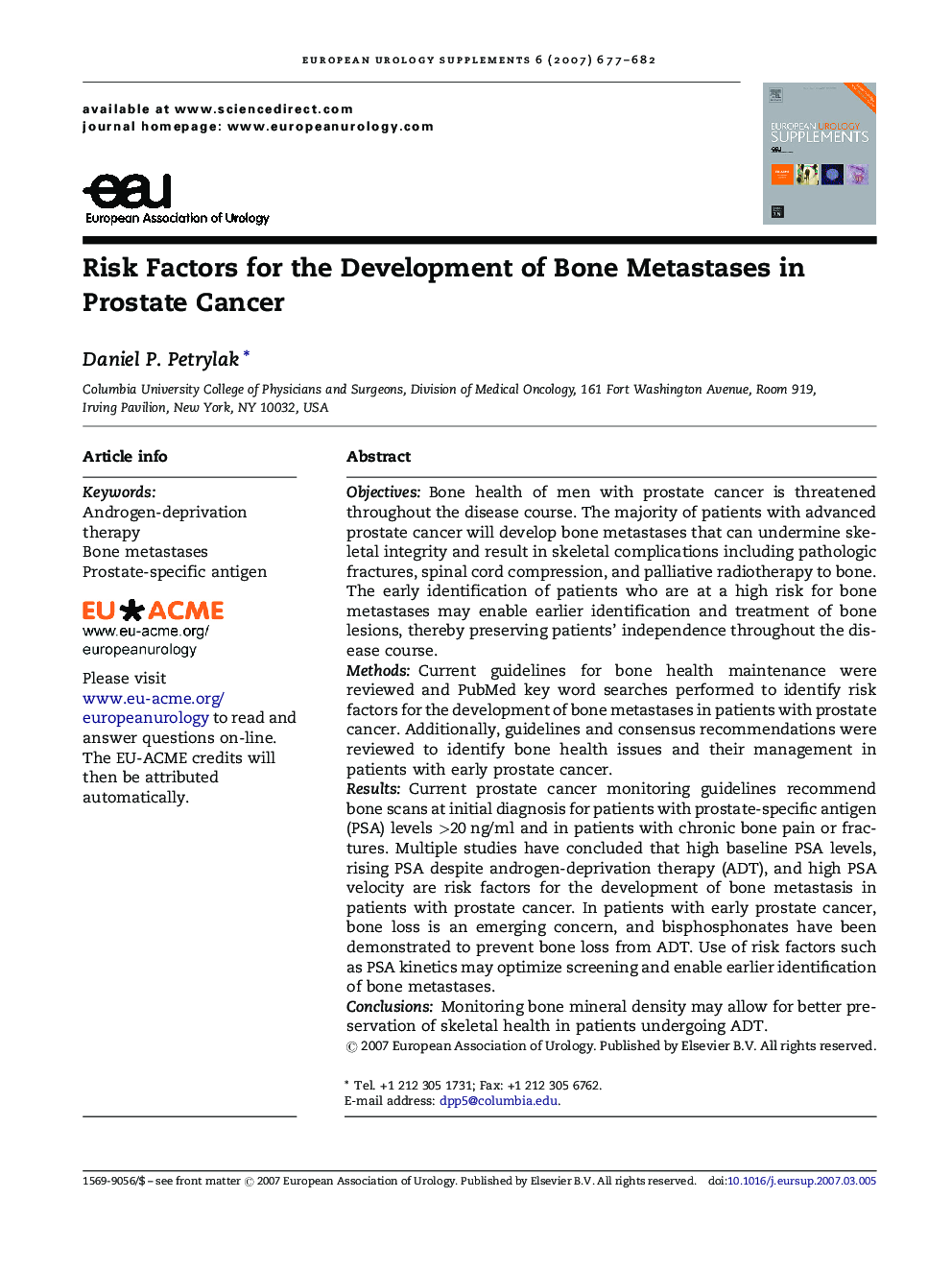| Article ID | Journal | Published Year | Pages | File Type |
|---|---|---|---|---|
| 3930571 | European Urology Supplements | 2007 | 6 Pages |
ObjectivesBone health of men with prostate cancer is threatened throughout the disease course. The majority of patients with advanced prostate cancer will develop bone metastases that can undermine skeletal integrity and result in skeletal complications including pathologic fractures, spinal cord compression, and palliative radiotherapy to bone. The early identification of patients who are at a high risk for bone metastases may enable earlier identification and treatment of bone lesions, thereby preserving patients’ independence throughout the disease course.MethodsCurrent guidelines for bone health maintenance were reviewed and PubMed key word searches performed to identify risk factors for the development of bone metastases in patients with prostate cancer. Additionally, guidelines and consensus recommendations were reviewed to identify bone health issues and their management in patients with early prostate cancer.ResultsCurrent prostate cancer monitoring guidelines recommend bone scans at initial diagnosis for patients with prostate-specific antigen (PSA) levels >20 ng/ml and in patients with chronic bone pain or fractures. Multiple studies have concluded that high baseline PSA levels, rising PSA despite androgen-deprivation therapy (ADT), and high PSA velocity are risk factors for the development of bone metastasis in patients with prostate cancer. In patients with early prostate cancer, bone loss is an emerging concern, and bisphosphonates have been demonstrated to prevent bone loss from ADT. Use of risk factors such as PSA kinetics may optimize screening and enable earlier identification of bone metastases.ConclusionsMonitoring bone mineral density may allow for better preservation of skeletal health in patients undergoing ADT.
